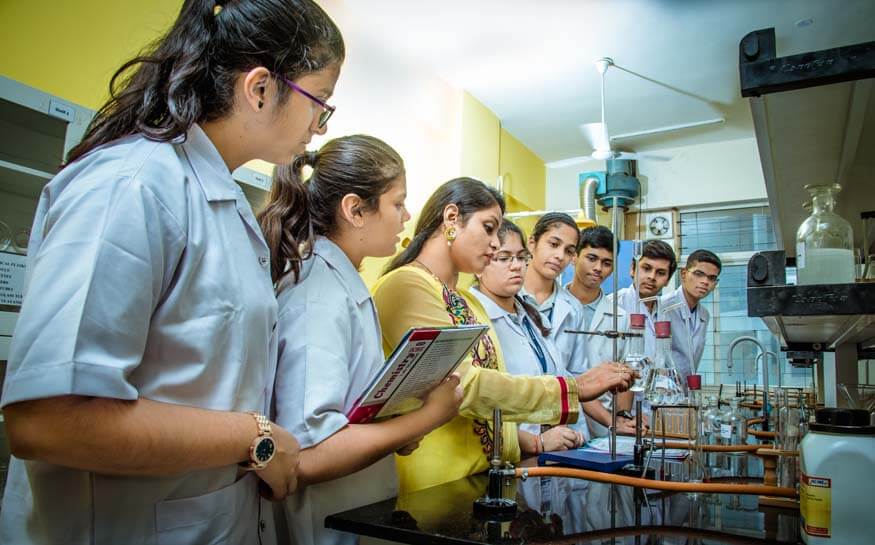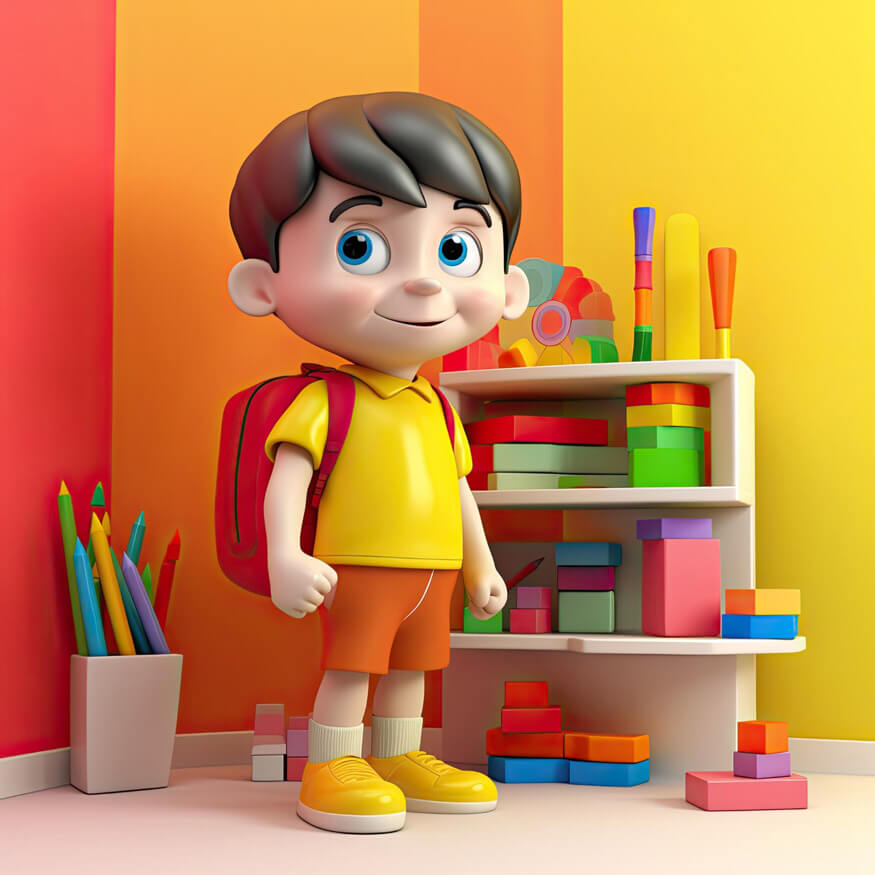Teaching kids through science experiments is an innovative and captivating approach that sparks curiosity, ignites young minds, and fosters a deeper understanding of scientific concepts. It involves hands-on exploration, observation, and discovery, making the learning process engaging, enjoyable, and meaningful for children. Today we are going to learn some effective reasons and benefits of science experiments in early childhood.
Also Read: Smart ways to introduce science to your toddler
Benefits of science experiments for preschoolers:
Here are some important key benefits of science experiments for preschoolers and why they need to learn through science experiments.
- Active Learning: Science experiments engage children actively in the learning process. Rather than merely listening to lectures or reading from textbooks, kids become active participants who manipulate materials, make observations, and draw conclusions. This hands-on experience helps solidify their understanding of scientific principles.
- Curiosity and Inquiry: Children are naturally curious, and science experiments provide an avenue to nurture and satisfy their curiosity. When kids observe phenomena firsthand, they are more likely to ask questions and seek answers, fostering their innate spirit of inquiry and encouraging a thirst for knowledge.
- Critical Thinking: Science experiments require children to think critically and analytically. As they form hypotheses, design experiments, collect data, and interpret results, they develop essential skills in logical reasoning. This ability to analyse information and draw evidence-based conclusions extends beyond the realm of science and becomes a valuable life skill.
- Problem-Solving Skills: Engaging in science experiments often involves overcoming challenges and obstacles. Kids must think creatively to devise solutions, troubleshoot issues, and make adjustments to their experiments. This problem-solving process helps children develop resilience and adaptability, skills that are crucial for success in various aspects of life.
- Hands-on Exploration: Science experiments offer a tangible and immersive learning experience. Through direct interaction with materials and equipment, children gain a deeper appreciation of scientific concepts, bridging the gap between theory and practice.
- Real-World Application: Science experiments provide a tangible connection to real-world applications. Children can witness firsthand how scientific principles are relevant and impact their everyday lives, making learning more meaningful and relatable.
- Collaboration and Communication: Many science experiments involve teamwork. Working together on experiments encourages effective communication, cooperation, and the exchange of ideas among children. These social skills are essential for success in both academic and personal environments.
- Memory Retention: Hands-on experiences create lasting impressions in a child’s memory. The sensory nature of science experiments enhances retention, making it more likely for children to remember the concepts and information they learned.
- Cultivating a Love for Learning: Science experiments make learning fun and enjoyable for children. When kids see science as exciting and accessible, they are more likely to develop a lifelong passion for learning and exploration.
- Building Confidence: Successfully conducting experiments and understanding scientific concepts boosts children’s confidence in their abilities. This confidence can extend to other areas of their academic and personal lives, fostering a positive attitude towards learning and challenging tasks.
- Bridging Theory and Practice: The main benefits of Science experiments are to bridge the gap between theoretical knowledge and practical application. Children get to see the principles they learned in textbooks come to life, enhancing their overall comprehension and appreciation of science.
- Motivation and Engagement: Science experiments spark curiosity and motivation in children. The hands-on nature of experimentation creates a positive learning environment, reducing boredom and increasing engagement.
- Inclusive Learning: Science experiments cater to various learning styles, including visual, auditory, and kinaesthetic. This inclusivity ensures that different types of learners can grasp scientific concepts effectively.
- Learn From Experience: Science experiments are a type of experiential learning in which students actively generate knowledge through their experiences. This technique promotes a better degree of awareness and ownership over their learning experience.
- Long Term influence: Initial science experimentation can have a lasting impact on a child’s educational and career interests. It has the potential to spark an interest in the domains of science, technology, engineering, and mathematics, which impacts future career choices.
- Future Innovators: One of the useful benefits of Science experiments boost creativity and innovation. We build a generation of critical minds and problem solvers by allowing children to explore and experiment, and they can go on to provide new ideas and solutions in a variety of areas.
- Global Relevance: science is a universal language, and science experiments allow students to connect with people all around the world by sharing knowledge and understanding. This international worldview promotes connectivity and sympathy.
- Environmental Awareness: Science experiments related to environmental topics can raise children’s awareness about ecological issues and the importance of sustainable practices, empowering them to become responsible stewards of the planet.
- Instilling Ethical Values: Science experiments provide opportunities to discuss ethical considerations, such as the responsible use of technology and the ethical treatment of living organisms. These discussions help shape children’s values and decision-making skills.
- Parent Involvement: Science experiments can involve parents, guardians, or caregivers, fostering a supportive and collaborative learning environment at home. Family participation in these activities strengthens the bond between children and their caregivers while promoting education as a shared priority.
Also Read: What is Learning Science and Why Does It Matter?
Examples:
- Balloon Rocket: Students inflate a balloon and tie it with a cord to a straw. The releasing air drives the straw forward when they let go of the balloon’s air. The principle of action and response and the force of air pressure are demonstrated in this experiment.
- Rain Cloud in a Jar: Using a glass jar, hot water, ice cubes, and food colouring, students create a simulated rain cloud. As warm air rises from the hot water and cools, it condenses on the ice cubes, forming “rain” that falls back into the jar. This experiment illustrates the water cycle and the process of condensation and precipitation.
- Growing Crystals: Using sugar, water, and food colouring, students make their own crystal-growing solution. They witness lovely crystals growing after leaving the solution undisturbed for a few days. The ideas of supersaturation and crystal formation are introduced in this experiment.
- Egg Bottle: The notion of air pressure is used by students to place a hard-boiled egg into a glass container without touching it. When the air within the bottle is heated, it expands, resulting in reduced pressure. The increased external pressure forces the egg into the bottle when it is placed on top. The link between air pressure and volume is demonstrated in this experiment.
Also Read: Science Experiments Every Primary Student Should Know
Conclusion:
At EuroSchool, we believe that teaching kids through science experiments is a powerful educational approach that brings numerous benefits. The reason and benefits of science experiments in early childhood are that by incorporating them into education, we empower children to become lifelong learners, critical thinkers, and innovators capable of addressing the challenges of the future.










